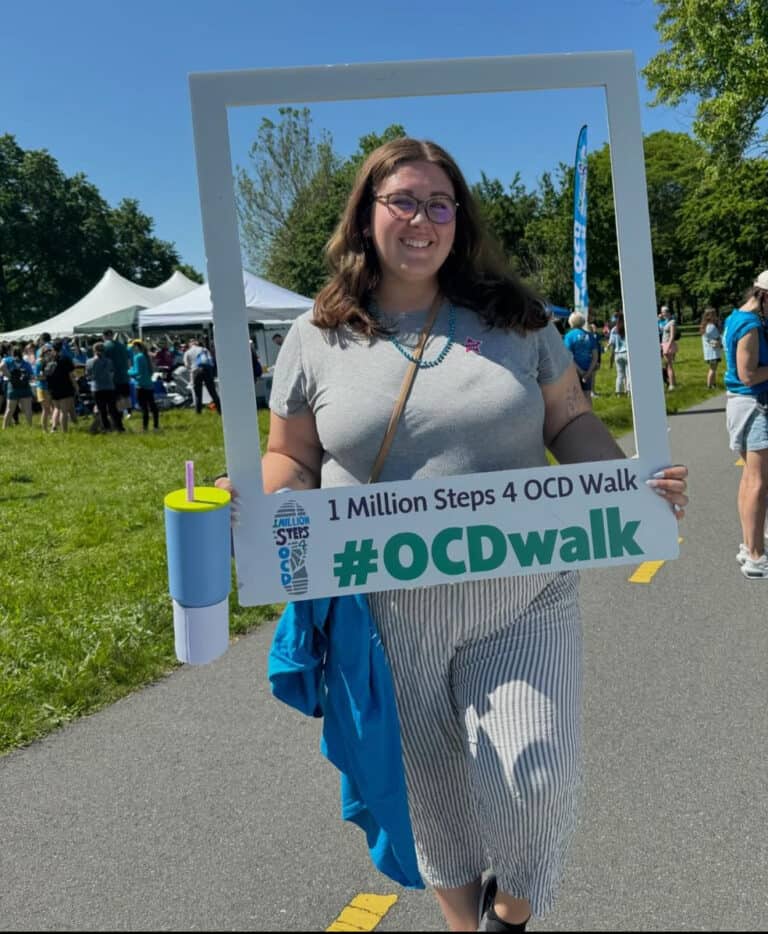What is Brain Fog in OCD and How to Manage It Effectively

For many people with Obsessive-Compulsive Disorder (OCD), brain fog is a frustrating and debilitating symptom. It’s not just about feeling mentally exhausted; it’s a state of cognitive difficulty where thoughts feel clouded, making it hard to concentrate, remember things, or make decisions.
Brain fog can significantly impact daily life and hinder an individual’s ability to function at their best. In this article, we’ll explore the connection between brain fog and OCD, how OCD contributes to cognitive challenges, and provide practical strategies for managing brain fog to improve mental clarity and overall well-being.
Understanding Brain Fog and Its Symptoms
What is Brain Fog?
Brain fog refers to a collection of cognitive symptoms such as memory issues, lack of focus, mental fatigue, and difficulty concentrating. It can make everyday tasks feel overwhelming and may affect one’s ability to think clearly or make decisions.
How Brain Fog Manifests in OCD
For people with OCD, brain fog can occur due to the mental energy spent on intrusive thoughts, compulsions, and constant rumination. The mental strain associated with managing obsessive thoughts often leaves individuals feeling mentally drained and unable to focus on other tasks.
Common Symptoms of Brain Fog in OCD
- Difficulty concentrating on tasks or conversations
- Mental fatigue or feeling “zoned out”
- Forgetfulness or trouble remembering details
- Slower cognitive processing and decision-making
- Feeling overwhelmed or “foggy” in everyday situations
The Connection Between OCD and Brain Fog
OCD and Its Impact on Cognitive Function
OCD often creates a cycle of intrusive thoughts and compulsive behaviors that consume a person’s attention and mental resources. This constant mental activity can impair cognitive function, leading to difficulty focusing, processing information, and completing tasks. As a result, brain fog can become a persistent symptom for many with OCD.
The Role of Anxiety in Brain Fog
OCD is closely linked to anxiety, which can exacerbate cognitive difficulties. Anxiety causes the mind to become hyper-focused on distressing thoughts, leaving little mental bandwidth for clarity or concentration. This heightened state of worry contributes to feelings of brain fog.
The Effect of Obsessive Thoughts on Cognitive Load
The mental burden of constantly managing obsessive thoughts can overwhelm the brain, leading to mental exhaustion. This cognitive load diminishes the brain’s ability to focus on other important tasks, contributing to the experience of brain fog.
How Stress and Fatigue Contribute to Brain Fog in OCD
The Relationship Between Stress and Cognitive Function
Chronic stress, which is common in people with OCD, can negatively affect brain function. Stress hormones like cortisol can impair memory and attention, making it more difficult to focus, learn, and recall information. This, in turn, can contribute to the experience of brain fog.
Fatigue from OCD Symptoms
The constant engagement with intrusive thoughts and compulsive behaviors can lead to mental and physical fatigue. Over time, this fatigue depletes the brain’s energy and its capacity to maintain clarity, leading to mental exhaustion and cognitive difficulties.
How Lack of Sleep Affects Cognitive Function
OCD can also lead to sleep disturbances, either from obsessive thoughts keeping someone awake or from heightened anxiety. Sleep deprivation further exacerbates brain fog, as the brain does not have the opportunity to rest and reset, impairing cognitive functions such as memory, focus, and decision-making.
Strategies to Manage Brain Fog in OCD
Mindfulness and Meditation
Practicing mindfulness and meditation can help manage brain fog by promoting mental clarity and reducing stress. Mindfulness helps to focus on the present moment, reducing the mental clutter caused by obsessive thoughts and allowing the mind to reset.
Cognitive Behavioral Therapy (CBT) and ERP
Cognitive Behavioral Therapy (CBT) and Exposure and Response Prevention (ERP) are evidence-based treatments for OCD. These therapies help address the root causes of OCD symptoms, including intrusive thoughts, by teaching individuals how to reframe their thinking and reduce compulsive behaviors. Managing OCD symptoms with CBT and ERP can also alleviate the mental strain that contributes to brain fog.
Prioritize Sleep and Rest
To combat brain fog, prioritize good sleep hygiene and ensure you’re getting enough rest. Proper sleep helps to improve cognitive function and mental clarity. Aim for a consistent sleep schedule, avoid caffeine late in the day, and create a calming nighttime routine to enhance sleep quality.
Engage in Regular Physical Activity
Exercise is known to boost mental clarity by increasing blood flow to the brain and promoting the release of endorphins. Regular physical activity also reduces stress and anxiety, which are common triggers for brain fog in OCD. Aim for at least 30 minutes of moderate exercise a few times a week to help improve focus and reduce cognitive fatigue.
Diet and Nutrition for Brain Fog Management
The Impact of Nutrition on Cognitive Function
What you eat can significantly affect brain function. A balanced diet with proper nutrients can help reduce brain fog and improve focus. Foods rich in omega-3 fatty acids, antioxidants, and vitamins—such as fish, leafy greens, nuts, and seeds—support cognitive health and can help alleviate symptoms of brain fog.
The Role of Hydration
Dehydration is another common cause of brain fog. Ensure you’re drinking enough water throughout the day to stay hydrated. Dehydration can negatively impact focus, memory, and overall brain function.
Avoiding Sugar and Processed Foods
Excessive sugar and processed foods can contribute to inflammation and cognitive decline, worsening brain fog. Focus on eating whole, nutrient-dense foods to support both physical and mental health.
Seeking Professional Help for OCD and Brain Fog
When to Seek Therapy for Brain Fog
If brain fog is significantly affecting your daily life and functioning, it may be helpful to seek professional help. A mental health professional specializing in OCD can guide you through effective treatment options such as therapy, medication, and lifestyle changes to manage both OCD symptoms and brain fog.
Medication for OCD and Brain Fog
In some cases, medication may be prescribed to help manage the symptoms of OCD, anxiety, and brain fog. Antidepressants such as SSRIs (Selective Serotonin Reuptake Inhibitors) are commonly used to treat OCD, and they may also help alleviate cognitive difficulties related to anxiety.
Therapy Options for OCD and Cognitive Difficulties
In addition to CBT and ERP, other therapeutic approaches like Acceptance and Commitment Therapy (ACT) or mindfulness-based cognitive therapy (MBCT) can be beneficial in addressing both OCD symptoms and cognitive challenges like brain fog.
Conclusion:
Brain fog is a common yet frustrating symptom for individuals with OCD, stemming from the cognitive load caused by obsessive thoughts, anxiety, and stress. However, with the right strategies—such as mindfulness, therapy, proper sleep, physical activity, and nutrition—you can manage brain fog and improve your mental clarity. By addressing the root causes of OCD and adopting healthy habits, you can reduce the impact of brain fog and lead a more focused, balanced life.



